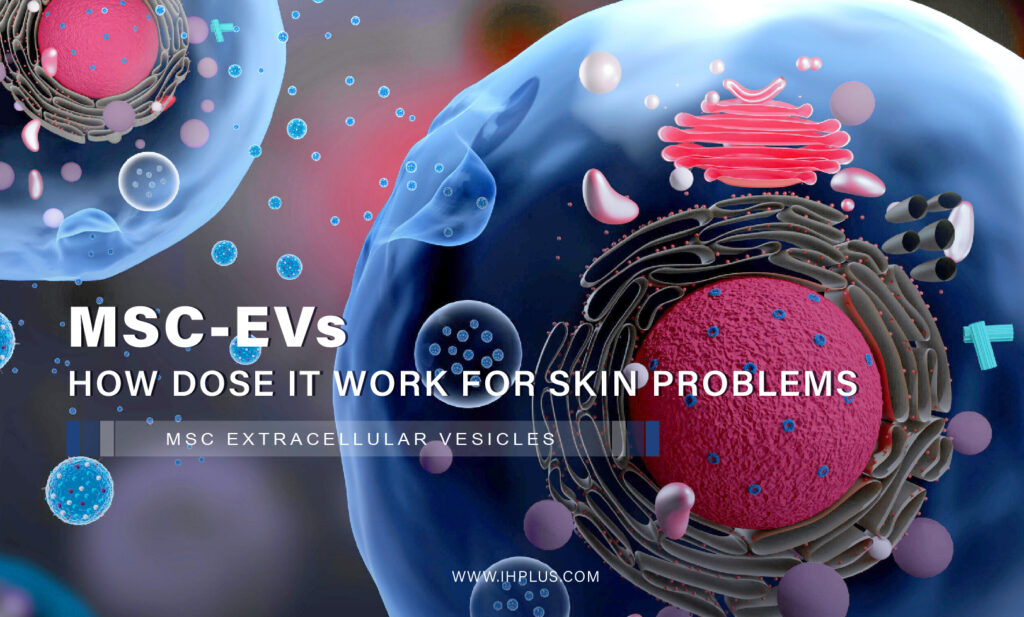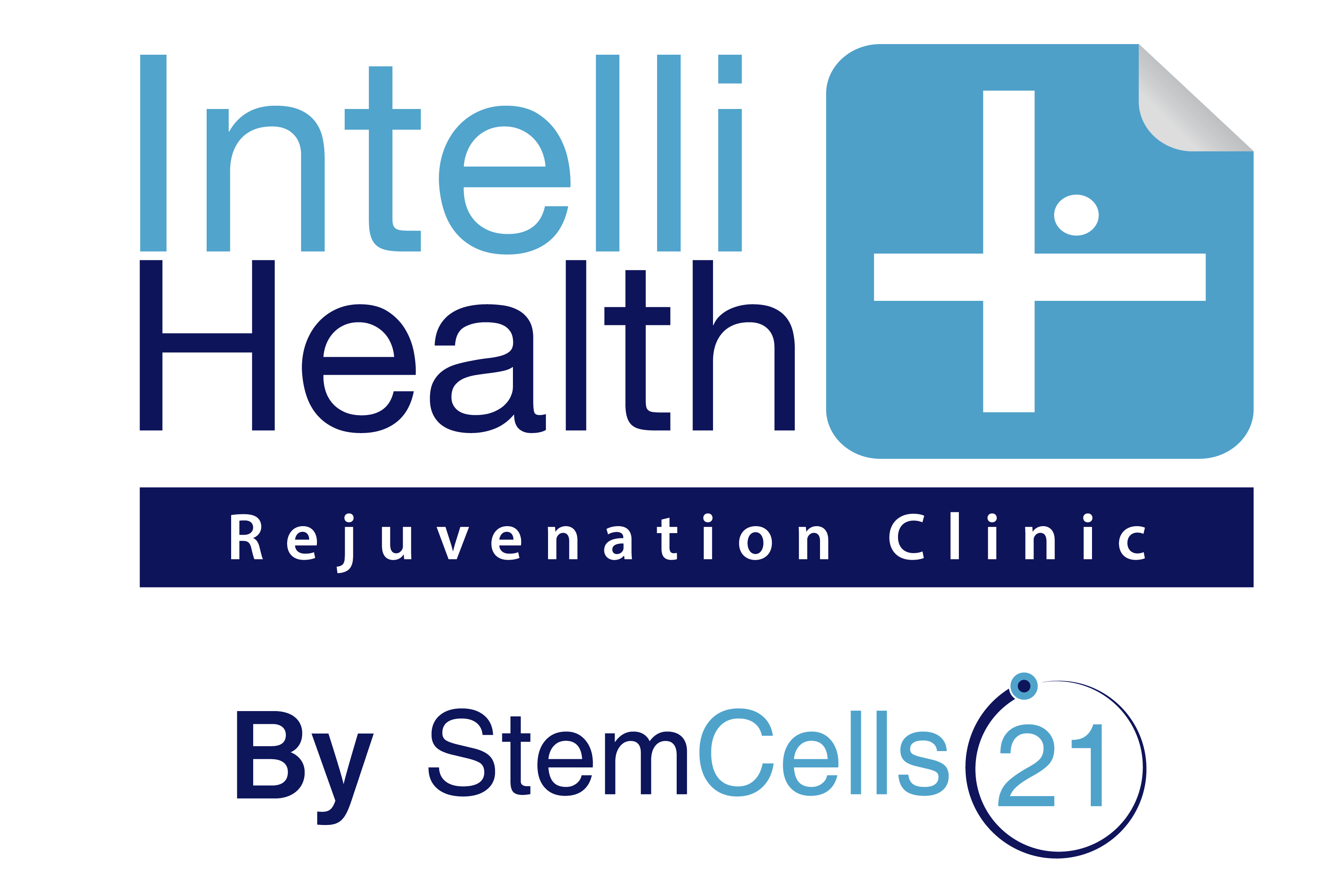
How MSC-EVs Work for Skin Problems
Unlocking the Potential of Mesenchymal Stem Cell-derived Extracellular Vesicles for Skin Health.
The quest for effective treatments addressing skin problems has led to groundbreaking advancements in regenerative medicine. Among these innovations, Mesenchymal Stem Cell-derived Extracellular Vesicles (MSC-EVs) have emerged as promising agents offering a new avenue for managing various skin issues.
MSC-EVs (Mesenchymal Stem Cell-derived Extracellular Vesicles) play a significant role in addressing skin problems due to their unique properties. These tiny vesicles, secreted by Mesenchymal Stem Cells (MSCs), contain bioactive molecules such as proteins, lipids, and nucleic acids.
MSC-EVs show promise in addressing skin problems, further research is ongoing to fully understand their mechanisms of action, optimize their use, and establish their effectiveness in clinical settings.
Here's how dose MSC-EVs work for skin problems?
MSC-EVs have shown tremendous potential in addressing an array of skin problems owing to their multifaceted properties:
- Anti-inflammatory Effects: MSC-EVs contain molecules that can suppress inflammation. When applied or administered, these vesicles may help modulate the inflammatory response associated with various skin issues like eczema, psoriasis, or dermatitis. By reducing inflammation, they contribute to easing skin redness, itching, and discomfort.
- Tissue Repair and Regeneration: MSC-EVs carry growth factors and signaling molecules that support tissue repair and regeneration. They can promote the healing process by stimulating cell growth, encouraging the renewal of damaged skin cells, and aiding in the restoration of the skin barrier function.
- Immunomodulatory Properties: These vesicles have immunomodulatory effects, influencing the immune response. In skin conditions where immune system dysfunction plays a role, such as autoimmune-related skin disorders, MSC-EVs may help regulate the immune system, potentially alleviating symptoms.
- Promotion of Skin Cell Health: MSC-EVs contain factors that support the health and functionality of skin cells. They may enhance the viability of skin cells, improve their ability to resist damage, and contribute to overall skin health.
- Reduction of Oxidative Stress: Oxidative stress can contribute to skin aging and certain skin conditions. MSC-EVs are believed to contain antioxidants that help counteract oxidative stress, potentially benefiting the skin’s overall health and appearance.
- Potential for Targeted Delivery: MSC-EVs can potentially be engineered or modified to carry specific therapeutic cargos or molecules, allowing for targeted delivery to affected areas of the skin. This targeted delivery can enhance their effectiveness in treating localized skin problems.
- Safety and Low Immunogenicity: MSC-EVs have shown promising safety profiles with low risk of immune rejection. This makes them a potentially attractive option for therapy, offering benefits without triggering adverse immune reactions.
Here are some important things to know about skin conditions:
- Autoimmune Origin: Skin conditions linked to autoimmune disorders occur when the immune system mistakenly attacks healthy skin cells or tissues, resulting in various skin manifestations.
- Diverse Skin Manifestations: Autoimmune-related skin conditions can present in diverse ways, such as rashes, redness, itching, scaling, blistering, discoloration, thickening, or hardening of the skin.
- Common Autoimmune Skin Conditions: Conditions like psoriasis, eczema (atopic dermatitis), lupus erythematosus, scleroderma, dermatomyositis, vitiligo, and bullous pemphigoid are among the skin conditions associated with autoimmune dysfunction.
- Influence of Genetics and Environment: While genetics may predispose individuals to autoimmune disorders, environmental factors such as stress, infections, medications, and lifestyle choices can trigger or exacerbate these conditions.
- Chronic Nature: Many autoimmune-related skin conditions are chronic and characterized by periods of remission and flare-ups, impacting an individual’s quality of life.
- Impact Beyond Skin: Some autoimmune skin disorders may affect other organs or systems, causing systemic symptoms and complications beyond the skin.
- Diagnosis and Management: Diagnosis often involves a combination of medical history review, physical examination, skin biopsies, and laboratory tests to confirm the underlying autoimmune condition. Management may include medications to modulate the immune system, topical treatments, phototherapy, systemic therapies, lifestyle modifications, and symptom management.
- Multidisciplinary Approach: Treating autoimmune-related skin conditions often requires a multidisciplinary approach involving dermatologists, rheumatologists, immunologists, and other specialists. Collaborative care ensures comprehensive management tailored to the individual’s needs.
- Quality of Life Considerations: Autoimmune skin conditions can significantly impact a person’s emotional well-being and daily life. Managing these conditions involves addressing not only physical symptoms but also the psychosocial aspects to improve overall quality of life.
- Ongoing Research and Treatment Advances: Ongoing research aims to better understand the underlying mechanisms of autoimmune-related skin conditions, leading to the development of more targeted and effective treatments.
The Promise of Targeted Delivery:
MSC-EVs offer the potential for targeted delivery to specific sites of concern on the skin. Engineered or modified MSC-EVs may be tailored to transport therapeutic cargos or molecules directly to affected areas, increasing their effectiveness in treating localized skin problems.
Towards Enhanced Skin Wellness:
Research surrounding MSC-EVs and their applications in dermatology is ongoing, with promising preclinical and early clinical results. However, further studies are needed to validate their efficacy, safety, and optimize their use for various skin conditions.
Mesenchymal Stem Cell-derived Extracellular Vesicles represent a remarkable frontier in dermatological treatments, offering a novel approach to tackling skin problems. As research progresses, the future holds the promise of leveraging these tiny vesicles to unlock new possibilities for enhanced skin health and well-being.
Schedule your FREE Consultation with our experience medical team today! for your journey to healthier and longevity..
YOU MAY BE INTERESTED..
Our treatment treated at IntelliHealthPlus Clinic By StemCells21
Book a FREE Consultation Now
IH+ Contact Form
Contact our international team of medical professionals with language services available in English, Thai, Arabic, Chinese, Spanish, and Russian.
Please indicate your preferred language and we will do our best to accommodate your request.












